OP Sequence
 |
 |
 |
 |
 |
 |
 |
 |
 |
 |
 |
 |
OP: 「MAGICAL DESTROYER」 by Aimii
 |
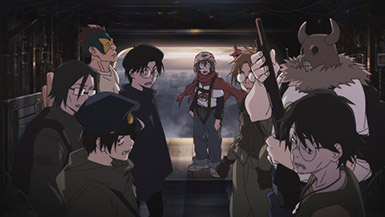 |
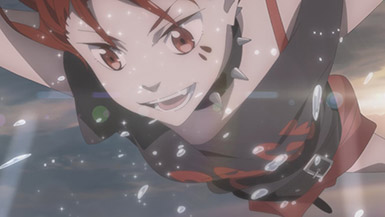 |
 |
 |
 |
 |
 |
 |
 |
 |
 |
 |
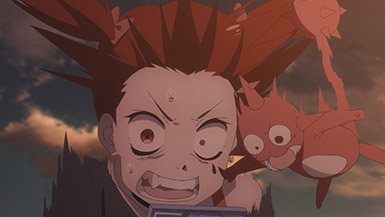 |
 |
 |
 |
 |
 |
 |
 |
 |
 |
 |
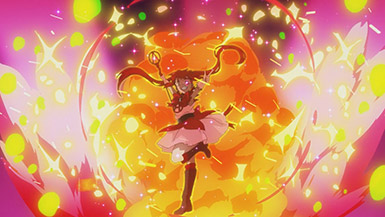 |
 |
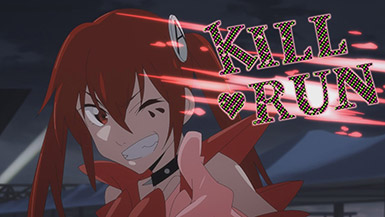 |
 |
 |
 |
 |
 |
 |
 |
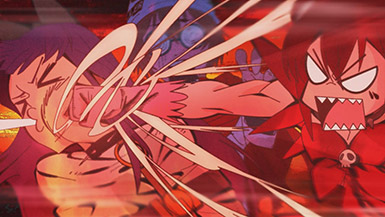 |
 |
「アキバに革命の炎燃ゆ」 (Akiba ni Kakumei no Honoo Moeyu)
“Rage Against Akihabara”
I can already sense great things in Mahou Shoujo Magical Destroyers’ future. Between its lively, high-energy art style and its topical rage against the establishment, it feels like the perfect show to help bring in the Spring 2023 season.
ANARCHY IN THE GALAXY
It’s an odd time to be alive. Back when Shimoneta came out, its depiction of dystopian censorship could easily be attributed to the commentary that an obsession with Puritanism is the key suspect in why people are so uneducated in a healthy, sex-positive mindset that could both increase the birth rate and keep people from being so repressed. But aside from that, one could also see it as resistance against the corporate sanitization of sexuality that was prominent as a half-hearted response to criticism of how media portrays sexuality.
Looking back on it, Shimoneta was one of those shows whose message is pretty malleable, both because it’s an irreverent comedy meant to make you laugh at sex jokes and because the existence of sex is a goofy thing to be offended by. It made it easy to poke fun at the Kajou family for being so sex-negative because of the lengths they went to censor society to the point where they created even more repressed goofballs among their own ranks.
But all of that feels oddly prophetic when a story like Mahou Shoujo Magical Destroyers comes along. When these shows get localized, everyone has their own perspectives. It can be reductive to say “This is just like me!” for shows that are from a completely different nation’s mindset. At the same time, with the social upheaval happening in my own country and abroad, I can’t help but be fascinated by how much of it feels born from current events that are a little too soon to align with the production and planning of this show.
Much like how the Blue Lock anime came in time for the World Cup, Mahou Shoujo Magical Destroyers wound up arriving right when culture wars are being implemented worldwide as a means of oppression. In Magical Destroyers’ case, hobbyists are stripped bare of their possessions as they become a convenient foot-in-the-door for the general populace to see them as societal ills. After they are demonized, there’s an initial rollout of bans on books and media, ultimately leading up to creating an apocalyptic wasteland devoid of any cultural expression.
It is an evergreen concept considering that it’s based on a 2019 art installation by otaku artist Jun Inagawa. From that timeframe, that would be pulling from the intersection between youth culture and pre-COVID identity politics. And then, there’s the matter that it takes place in 2011 during the aftereffects of a crisis from 2008. There’s the otaku using “Anarchy” to defeat authoritarianism. It’ll likely become a clearer picture as future episodes come out, but it is interesting how it aims to be provocative enough to force viewers to engage with the anime on a more serious level. Where it does become a Rorschach test based on what experiences you’ve gone through in recent times.
FLASH AND FLARE
Aside from its political themes, Magical Destroyers has an art style that is aesthetically trying to find its footing. It still embraces Inagawa’s magical girl inspirations with flashy designs and bright, poppy colors. At the same time, it’s stretched to its limits based on how close it can be to emulate a Gainax or Trigger vibe.
I can’t say it’s what I 100% expected from anime inspired by an artist considering how it wears its influences on its sleeves. Then again, that’s exactly why Inagawa’s work would be better suited for an adaptation than art from more abstract artists like Takashi Murakami, Yayoi Kusama, and Sebastian Masuda. For that punk otaku feel, it would need something that skirts the line between Slayers and Gurren Lagann. It keeps it tonally poppy, but also knows the limits that animators have to make everything sakuga.
Nah, that’s saved for the opening animation, which combines the fluidity of a beautiful early 2000s slice-of-life anime and the grungy aesthetic of Inagawa punk otaku artwork. It’s the one indicator that many have had that Magical Destroyers will be a sleeper hit, and in my eyes, I share that sentiment. Coming away from Magical Destroyers and many of the newer shows this season like Tengoku Daimakyou leave me feeling at ease with the state of anime. Where even in any given season where it’ll be front lined by the easiest consumable shows, you still have these small nooks and crannies where you can be pulled aside to revel in some of the wildest forms of expression to be brought to life.
Preview:
 |
 |
 |
 |
 |
 |
